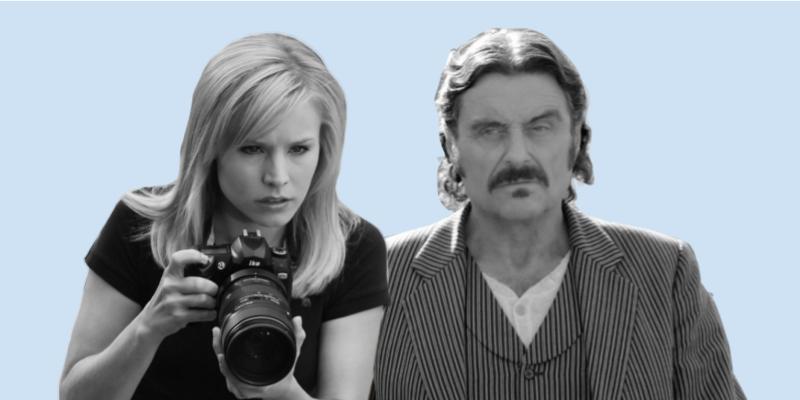We’re in a golden age of crime TV, so they say, but that doesn’t mean every deserving show gets its due. For every Breaking Bad that runs a tidy, self-determined arc over just the right number of seasons, two other worthy programs are cut short—canceled just as we were learning how and why to love them. It’s regrettable anytime a good show gets the axe, but crime TV cancellations are especially upsetting, with questions left unanswered, mysteries unsolved, deaths unavenged. Most recently, crime fans are lamenting the decision to cancel Hap & Leonard after three gritty, eccentric seasons, but that’s just one in a long line of quality crime programs snuffed out in the prime. We’ve assembled a list of beloved crime TV shows canceled too soon (imposing a somewhat arbitrary limit of shows that were on the air three seasons or less—aka the Deadwood line), from whacky procedurals to seaside PIs to teen mysteries and post-apocalyptic thrillers. We encourage all to watch these shows and, as we have, wonder “what if?” And when you’re done wondering, we’ve also included reading recommendations.
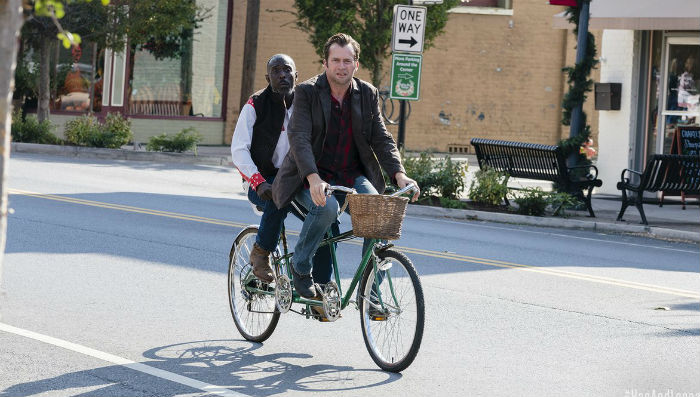
Hap & Leonard (Sundance TV)
Hap & Leonard is the latest addition to this list. Just last week, Sundance TV announced that the beloved show would not be renewed for a fourth season. But we had some good times, didn’t we? Based on Joe Lansdale’s long-running odd couple crime series, the program embraced the madcap irreverence of the source material and had the benefit of some extremely talented actors, led by Michael K. Williams and James Purefoy in the starring roles. The latest season, based on The Two Bear Mambo, was more socially relevant than ever, but the series never lost its sense of fun. The East Texas backdrop was key, but the purest pleasure the show had to offer was just the opportunity to hang around with these wisecracking, chaos-inducing badasses. Fortunately, the novels are still around, but we’ll miss our hour of TV.—Dwyer Murphy, CrimeReads senior editor
Reading Recommendations for Those Who Mourn It:
- All of Joe Lansdale’s work, including the most recent addition, Jackrabbit Smile; Attica Locke’s Bluebird, Bluebird, another East Texas instant classic; Lisa Sandlin’s The Do Right; Daniel Woodrell’s Bayou Trilogy
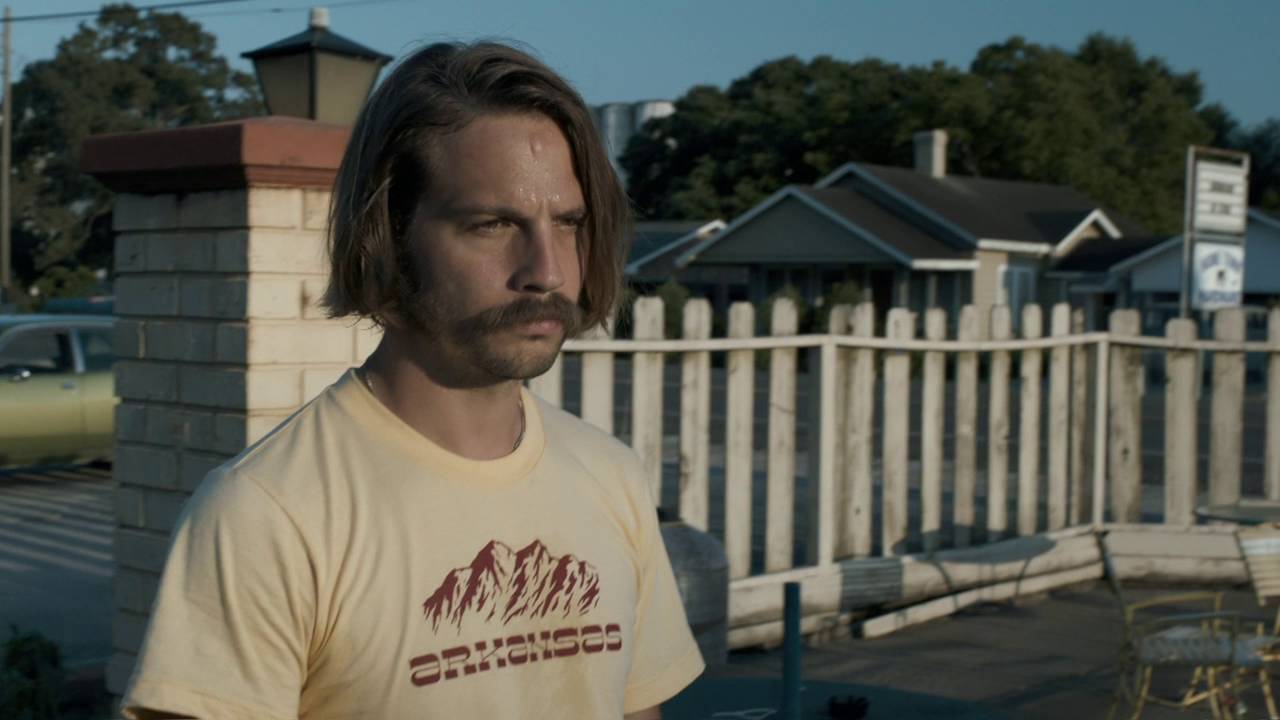
Quarry (Cinemax)
In one short season on Cinemax, Quarry established itself as the class of crime TV. Then just like that, it was over. Created by Graham Gordy and Michael D. Fuller, with the author of the source material, Max Allan Collins, on staff as an executive producer and writer, and Logan Marshall-Green and Jodi Balfour in starring roles, the talent was there. The setting was there: 1970s downtrodden Memphis, home to barbecue, blues, and more abandoned buildings than even the most enterprising criminal would know what to do with. The setup is fairly simple: Mac Conway returns from Vietnam with nothing, and gets drawn into serving as a hitman for local organized crime. But the emotional nuance the show’s writers and cast were able to wring out of that setup was truly astounding. From the music to the visuals to the subtle and not so subtle character arcs, this show was first class. Collins surely has a hundred other projects going right now, but we’ll still lament the loss of this one, the best crime show of 2016-17 in many hearts.—DM
Reading Recommendations for Those Who Mourn It:
- Any of the 14 novels in the Quarry series by Max Allan Collins, including the most recent, Quarry’s climax, ideally in the provocative Hard Case Crime volumes; Crossroad Blues by Ace Atkins; The 25th Hour by David Benioff; August Snow by Stephen Mack Jones
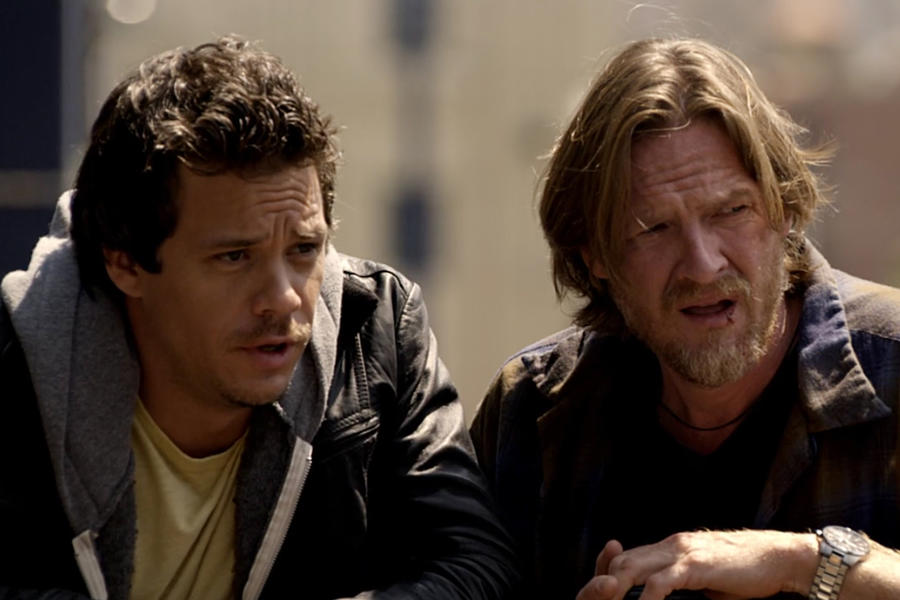
Terriers (FX)
The single greatest season of crime TV ever created…okay, that overstates the case for Terriers, surely, but not the affection many of us felt for FX’s short but beautifully lived PI series starring Donal Logue, Michael Raymond-James, and the scruffy seaside charms of Ocean Beach, San Diego, California. Although steeped in the low, sleazy California sunshine of Chandler and MacDonald, Terriers was really an heir to John D. MacDonald’s Travis McGee novels: rough around the edges, a little seedy, a little salty, but a knight errant still, and smarter than it had any right to be. Although the show began with a case-of-the-week format, it pivoted toward a season-long arc more recognizable to modern viewers of prestige crime TV. If there’s a more winning show out there, we’ve never seen it, but alas, a long run wasn’t meant to be, and this one was nipped in the bud, leaving us always wondering what Hank and Britt are up to now.—DM
Reading Recommendations for Those Who Mourn It:
- John D. MacDonald’s Travis McGee series, starting from the beginning with the classic, The Deep Blue Good-by; James Crumley’s CW Sughrue novels, Timothy Hallinan’s Poke Rafferty series, starting with A Nail Through the Heart; any of the classics from Chandler or Ross Macdonald; Kem Nunn’s surf noir, especially the masterpiece Tapping the Source, or certain letters from Sue Grafton’s Kinsey Millhone Alphabet novels.
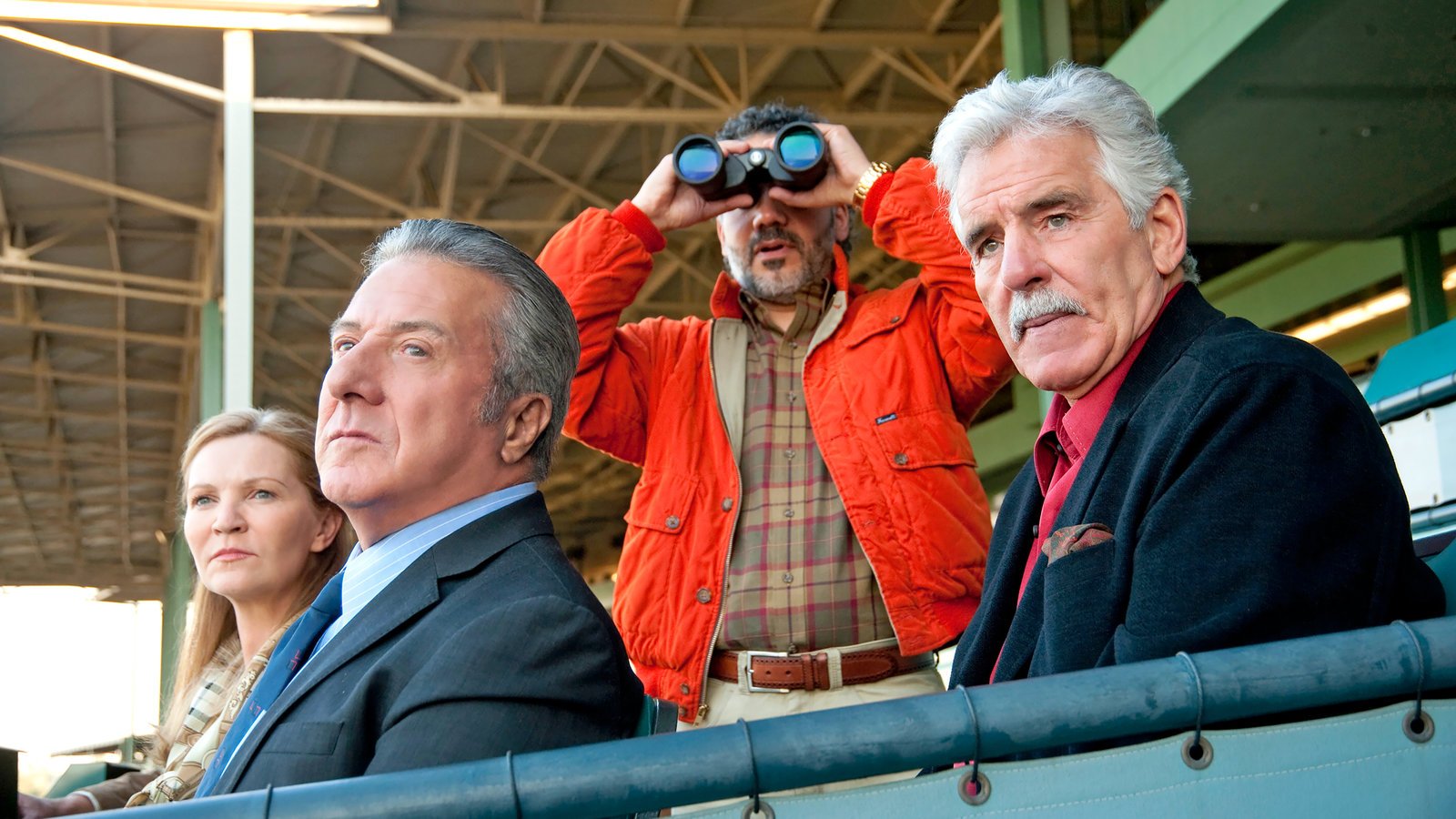
Luck (HBO)
Another Milch project gone too soon, this time (fair enough) to protect the horses that were reportedly injured and killed in the filming. Like Deadwood, Luck had a contained geography—in this case, the Santa Anita racetrack—that managed to feel as large and rich as an entire world, with its own sub-cultures, religions, languages, customs, and (above all) ambitions. The cast encompasses ex-cons, degenerate gamblers, trainers, jockeys, agents, bookies, and sharps. Dustin Hoffman was the obvious lead, but the ensemble was strong, and the track action, especially in the pilot, directed by Michael Mann, was simply breathtaking. It’s hard to know what Luck might have become given a little more time, but it seemed to be developing into another unforgettable epic, perhaps even a rival to Deadwood, when troubles forced the shutdown and cancellation after just one season.—DM
Reading Recommendations for Those Who Mourn It:
- Jane Smiley’s A Year at the Races; Michael Kardos’s Bluff; any of the poker scenes in John D. MacDonald’s work (see, Travis McGee’s acquisition of the Busted Flush); Jim Thompson’s classic The Grifters; Megan Abbott’s Queenpin
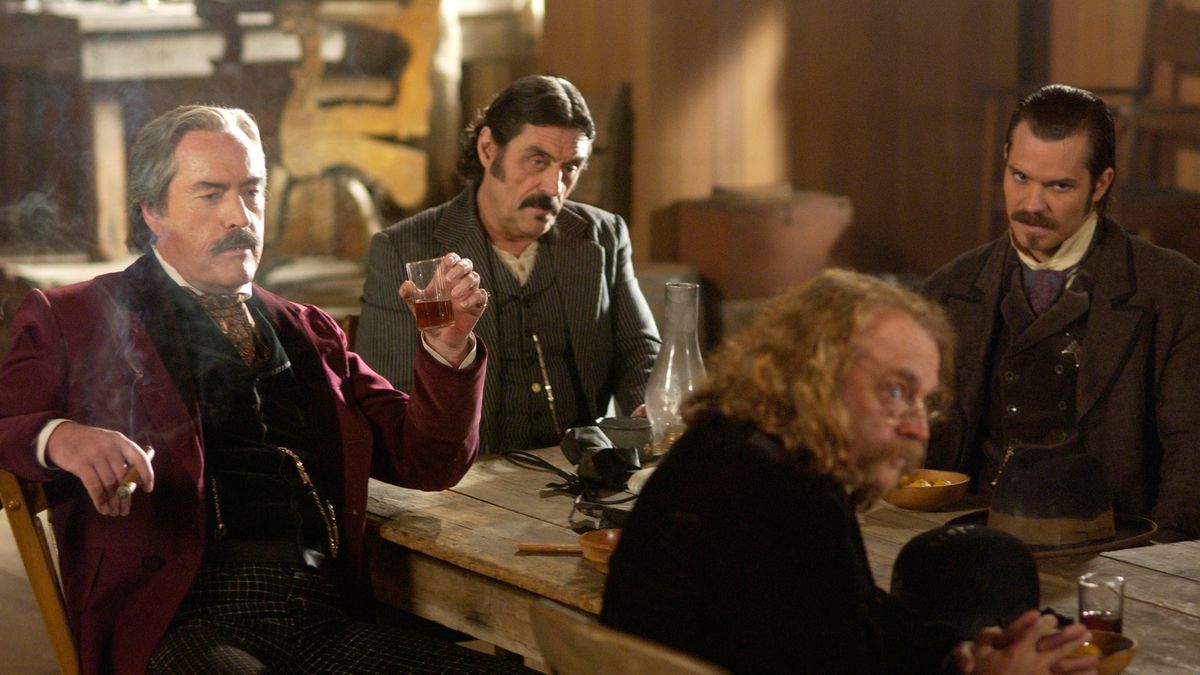
Deadwood (HBO)
Topping out at three seasons and with hour long episodes, Deadwood is perhaps the show on this list that least deserves to be here – but not deserving to be there never seemed to bother the murderous denizens and affectless prostitutes of the deadliest town in the west, in perhaps the most convincing depiction of filth and degradation in the name of manifest destiny since McCabe and Mrs. Miller. Deadwood told a whole lot of stories, with a whole lot of curse words, but we could have found 8 more seasons of enjoyment in listening to Al Swearengen alone.—Molly Odintz, CrimeReads associate editor
Reading Recommendations for Those Who Mourn It:
- Cormac McCarthy for those looking for the violence of the West, and Larry McMurtry for those who enjoy its bizarre charms; Joseph Conrad’s Nostromo (Conrad-heads know what I’m talking about); Adam Sternbergh’s The Blinds
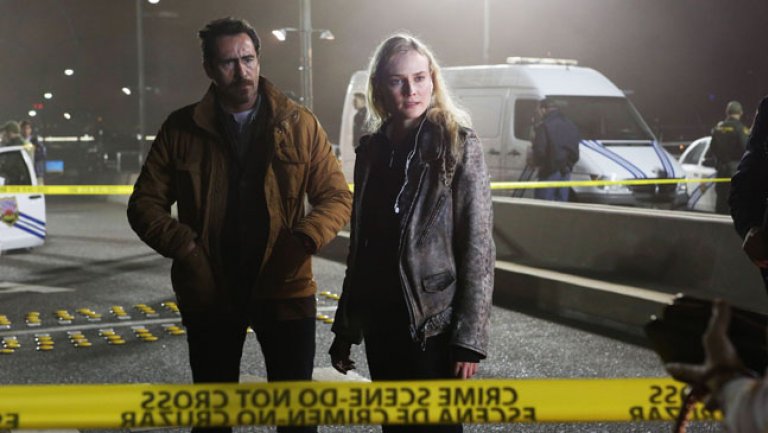
The Bridge (FX)
Another FX project, gone too soon. (No knock on FX—they put out a lot of great crime shows, and cancel some, too.) The Bridge was the American adaptation of the Scandinavian phenomenon Broen/Bron. The setup was classic: a dead body found in between jurisdictions, in this case forcing cops on either side of the US-Mexico border to come together. The Bridge show took a while to find its footing, but came into its own in season two, led by stars Diane Kruger and Demián Bichir, but also strong supporting performers, especially Matthew Lillard. More than anything, it seemed like the location—the El Paso-Juarez borderlands—deserved a sprawling, ambitious, complicated crime show. The Bridge was almost wilfully obscure, at times hewing closer to 2666 than commercial crime viewing US audiences are used to. It was willing to take on truly difficult and important issues: human trafficking, the US manufactured guns fueling the drug violence throughout the Americas, corruption on both sides of the border. But the show was, admittedly, susceptible to losing the forest for the trees. Still, another season, and this one might very well have lived up to its aspirations as The Wire of the US-Mexico borderlands.—DM
Reading Recommendations for Those Who Mourn It:
- Don Winslow’s cartel trilogy; Horacio Castellanos Moya’s The Dream of My Return; Guillermo Paxton, The Plaza; Martin Solares’s Don’t Send Flowers; Roberto Bolano’s 2666
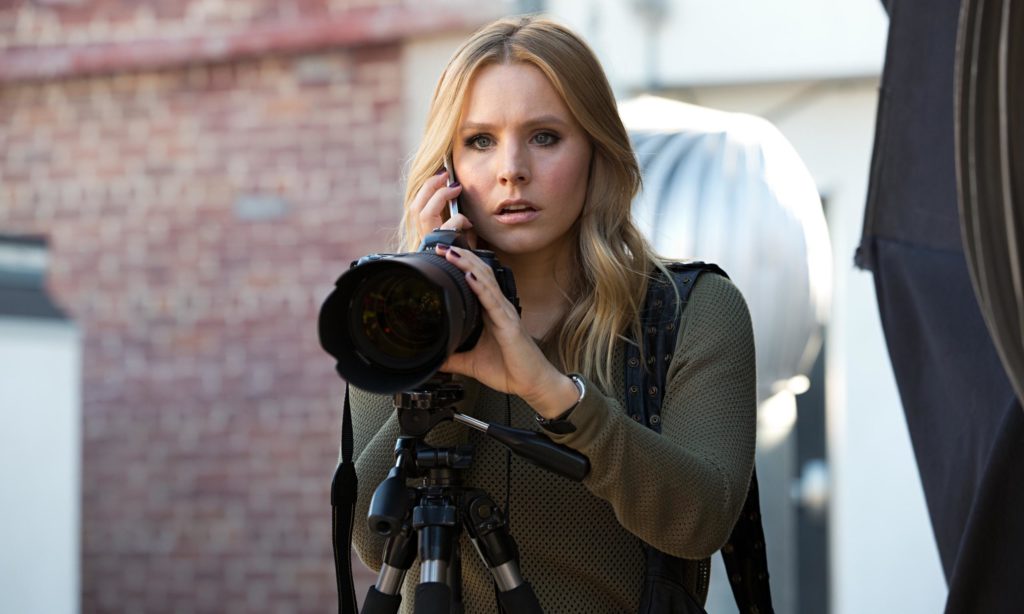
Veronica Mars (UPN/CW)
Oh Veronica, you captured our hearts, solved our mysteries, and then vanished from the screen (and briefly returned in a film and two books, then vanished again). Veronica Mars, for those of us who grew up on a diet of Xena and Buffy, was the completion of a trifecta of strong TV heroines conquering genre roles previously reserved for hunky men. The petite Kristen Bell used her wits and snark to solve many a high school mystery, with storylines perfectly balanced between crime of the week and crime of the season. The Veronica Mars movie, set 10 years after the end of the show, answered many of our lingering questions as to the future of the teenage detective, but I’m not so convinced as to how the film lays out Veronica’s future.—MO
Reading Recs for Those Who Mourn It:
- Not only did Veronica Mars get a movie to round out the plot, but series creator Rob Thomas and the fabulous author and bookseller (and my former coworker) Jen Graham also cowrote two book sequels to the series, taking place just after the end of the movie. The Thousand Dollar Tan Line is classic Veronica Mars, as she goes to solve the disappearance of a partying coed on spring break and of course discovers sinister happenings in Neptune. Mr. Kiss and Tell takes Veronica back to the Neptune Grande, this time to solve the case of a brutal attack on a secretive escort. If you’re still hankering for more further reading, check out Bustle’s list of mysteries that do their best to fill the hole in your heart where Veronica (and occasionally Logan) used to live…
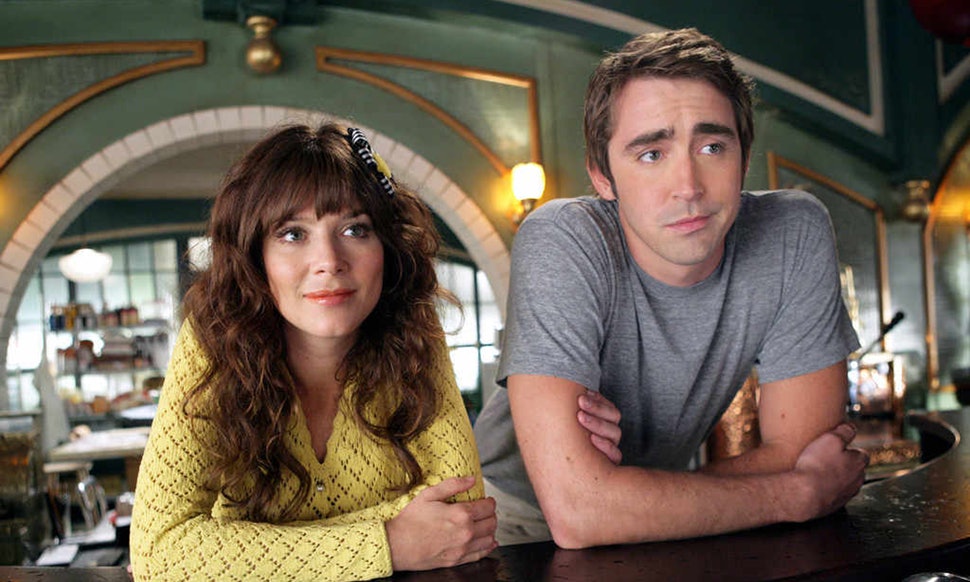
Pushing Daisies (ABC)
Anyone who thinks that the words “crime show” and “adorable” do not belong together should immediately watch this show…then rewatch it…then sigh, because two seasons were not nearly enough for the quirkiest private eye show ever to hit the small screen. Oft-described as a “forensic fairy tale,” Pushing Daisies tells the saga of Ned, a romantic pie baker who has the ability to bring people (and animals, fruit, etc.) back to life with a single touch—but when he touches them again, they go back to being dead. Ned teams up with a private investigator and an old flame to briefly bring the murdered back to life just long enough to figure out who killed them. There are saturated colors, musical sequences, bright flowers, vivid costumes, and a larger-than-life aesthetic that feels a bit like Baz Luhrman doing a crime show.—MO
Reading Recommendations for Those Who Mourn It:
- The whimsical Thursday Next mysteries of Jasper Fford may please the fan of Pushing Daisies, or Lisa Lutz’s Spellman Files, although both of those recommendations are based more on tone than on content.
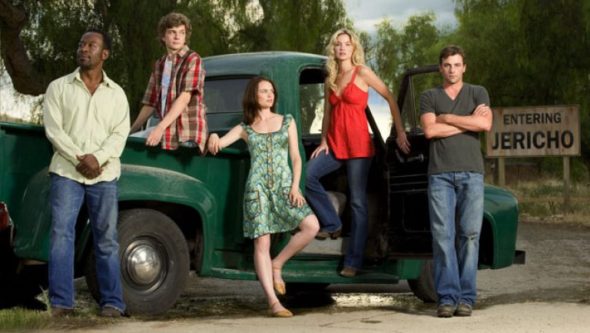
Jericho (CBS)
Hey, anyone remember Skeet Ulrich? Or the scandalous abuse of power by Blackwater Private Security? Take a trip back to 2006-08’s vanished headlines and stars with Jericho, the apocalyptic thriller that never quite got a chance to take off, despite stellar performances from Ulrich as the prodigal son returned home just in time to stave off nuclear disaster, Lenny James as a mysterious government agent, and Shoshonnah Stern as the quintessential pioneer woman, hanging out on her porch with a gun, ready for anything. Did we ever find out who set off all those nuclear bombs? What would have happened with the villainous private security firm in season three? And what about the Chinese relief effort?!?! I’m not sure if these are, indeed, unanswered questions, or if I just don’t remember the show that well (hey, it’s been a while since it’s been on Netflix), but I think we can all agree this show ended way, way too soon.—MO
Reading Recommendations for Those Who Mourn It:
- The Last One by Alexandra Oliva, in which a woman competing in a survival reality tv show emerges from the wilderness only to discover an apocalypse writ large.
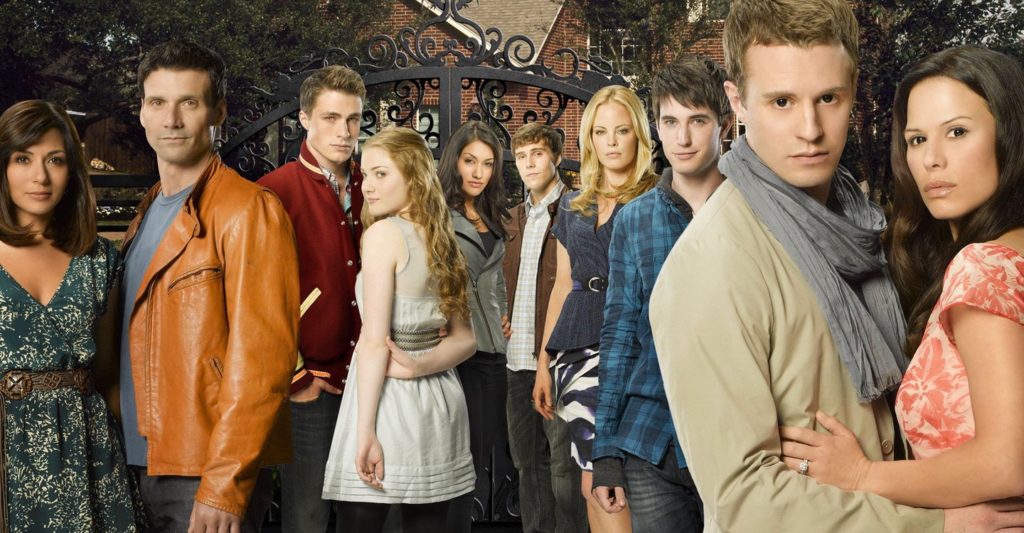
The Gates (ABC)
Set in Louisiana and featuring gothic, elegant monsters of every variety, from vampires to werewolves to witches and more, The Gates could have been the glitzier version of True Blood, if not for its premature cancellation after just one season (both shows feature Janina Gavankar, as one of their many affinities). The structure is classic procedural with a supernatural twist—when a new police chief moves to a gated community, he discovers more than just the usual suburban secrets, and must work to protect his community from outside forces while keeping the peace between dangerous neighborhood denizens.—MO
Reading Recommendations for Those Who Mourn It:
- We’d recommend Charlaine Harris’ Southern Vampire mystery series, or for those who like their vampires a bit more hard-boiled, Charlie Huston’s Joe Pitt series.
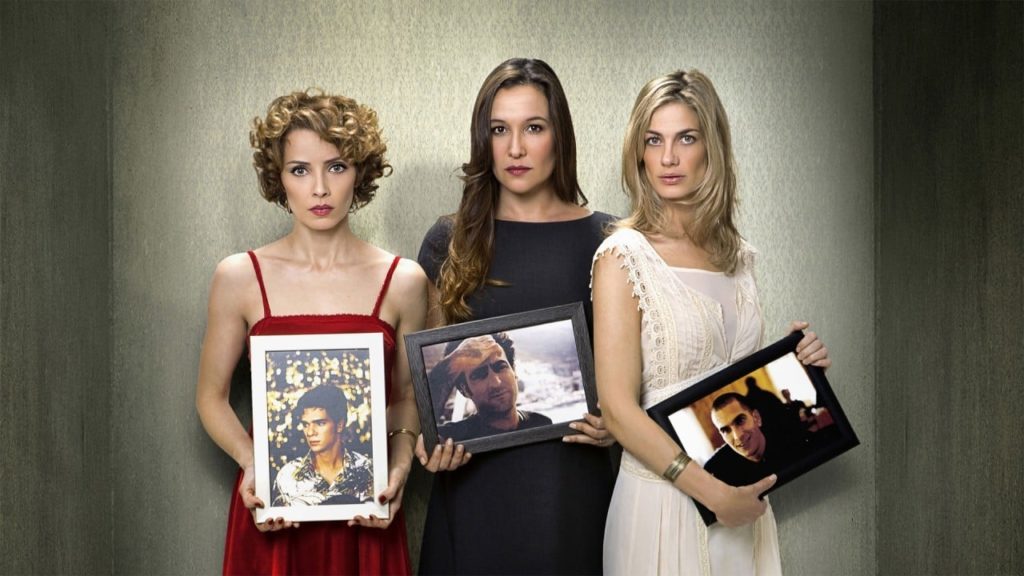
Hatufim (Prisoners of War) (Israel Ch. 2)
It will forever bother me that Hatufim lasted only two seasons, while Homeland, its simplified, way-more-racist American version, is still going strong (although the show has recently reevaluated its portrayal of American international relations and Muslim characters). Hatufim tells the story of three prisoners of war, two recently released and one presumed dead, and their families’ desperate attempts to save them and help them heal. It’s a master class in how to portray post traumatic stress disorder, both as experienced by the POWs and their families. While watching this show all in a burst, I came to think of it as more than stories of Israeli suffering, for who in Israel is most likely to spend over a decade behind bars? Palestinian activists. Therefore, while watching this show, I made the choice to see Hatufim as kind of like Andrej Wajda’s Kanał—those familiar with both Polish history and Soviet censorship understands that the Communists in Kanal actually represent the Polish Home Army, and vice versa. Even if Hatufim had lasted seven seasons, it’s hard to imagine feeling a sense of resolution at the end regardless of length—the power of the show lies in twisted, complex relationships and problems that have no easy solutions.—MO
Reading Recommendations for Those Who Mourn It:
- The Manchurian Candidate could make an excellent reading or watching companion to this show. Likewise, the film The Best Years of Our Lives would go quite well with the show, although for very different reasons. And of course, the aforementioned Kanal, although really, everyone should watch that anyway.
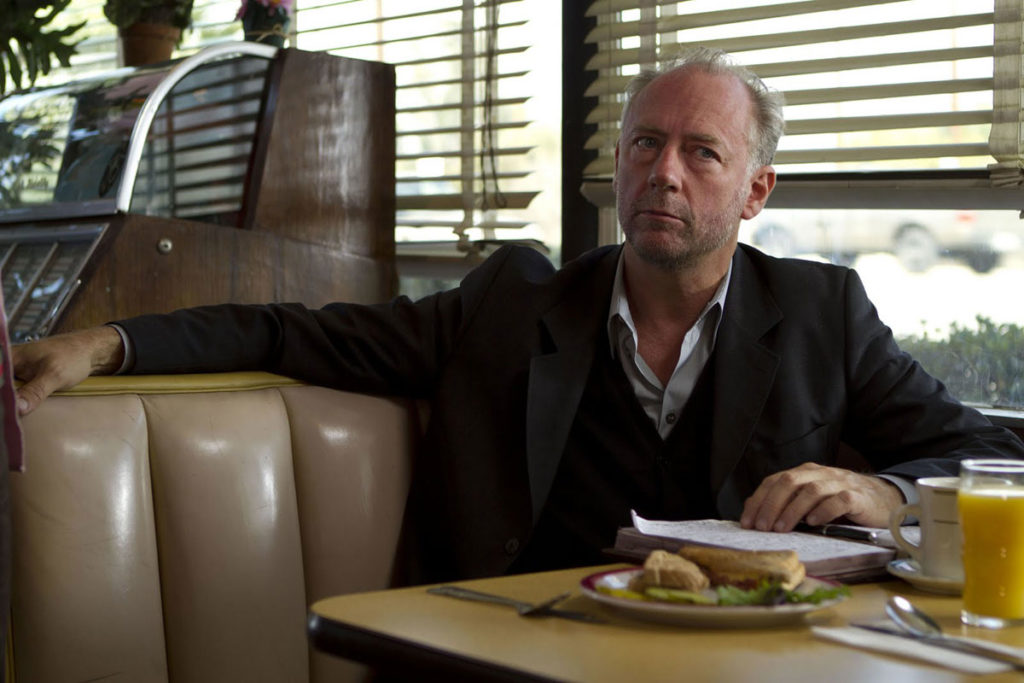
The Booth at the End (FX/Hulu)
Each episode of The Booth at the End begins with a meeting – a person with a difficult-to-solve problem heads to a diner and asks the man sitting at the booth at the end to help. He delivers biblical punishments and impossible solutions, but at great cost to each supplicant. Is he the devil? Is he a gangster? WHO IS THE MAN IN THE BOOTH AT THE END!?!?! And is there any limit to what people will do in exchange for a granted wish? We’ll never know, since this brilliant anthology show lasted only two seasons, but at least Black Mirror and American Horror Story have stepped up in its place as part of the new golden age of anthology shows.—MO
Reading Recommendations for Those Who Mourn It:
- Check out Steve Hamilton’s Nick Mason series for more Faustian bargains—when Mason gets a premature release from prison, he soon finds out there quite a few strings attached to his new-found “freedom.”

